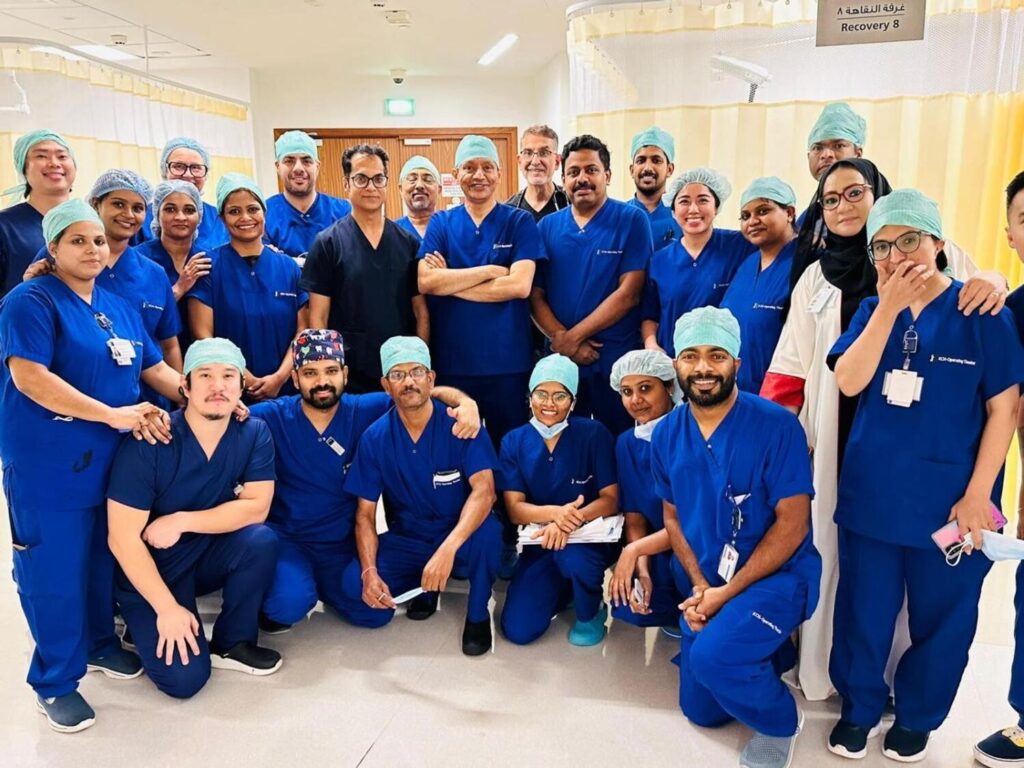Dubai’s first liver transplant: How doctors gave suffering patient ‘second chance at life’
The complex, four-hour-long surgery involved the complete removal of the diseased liver and the implantation of a healthy one

The first liver transplant in Dubai recently took place at Kings College Hospital London- Dubai.
The patient, a 38-year-old woman, suffered from a rare condition known as autoimmune hepatitis, which causes the body’s immune system to attack the liver and damage it. She arrived at the hospital with a yellowish discolouration around the eyes, and swelling of the feet and belly, indicating a failing liver.
The doctors said that the patient had already developed liver cirrhosis (scarring of the liver), which led to eventual liver failure.
Recognising the severity of the condition and the inadequacy of conventional treatments, the medical team at the hospital, led by Dr Kaiser Raja consultant hepatologist, Dr Parthiban Srinivasan, senior consultant transplant surgeon, and Dr Rakesh Rai, consultant hepatobiliary and transplant surgeon, deemed a liver transplant as the most viable and effective solution for the patient’s critical health situation.
Commenting on the patient’s disease and the decision to perform liver transplantation, Dr Kaiser said: “Liver cirrhosis is silent and does not cause any symptoms until your liver is 80 percent damaged. Patients who are diabetic, obese, or alcoholic are the most at risk. It is also a major risk factor for liver cancer. Thus, early recognition and prevention of liver disease progression can avoid liver failure.”
What followed was a complex, four-hour-long surgery that involved the complete removal of the diseased liver and the implantation of a healthy liver. After the successful surgery, the patient said, “My deepest thanks to the dedicated team of doctors who have given me a second chance at life and paved the way for hope in the face of adversity. Their commitment and expertise have made a profound difference in my journey to recovery, and I am grateful for their exceptional care and support.”
Following the liver transplant, the patient underwent 48 hours of ICU monitoring by medical professionals. As the post-transplant care strategy, the patient is required to consistently follow a regimen of long-term medications, regular follow-ups, including weekly blood tests, will play a crucial role in monitoring her health. She was discharged ten days post-surgery and has progressed positively during her recovery.
The UAE has the fastest-growing rate of post-mortem organ donation in the world. Following the announcement of the Abu Dhabi community campaign supporting the National Programme for Organ and Tissue Donation and Transplantation ‘Hayat’, launched by the Department of Health – Abu Dhabi, the number of registrants in the ‘Hayat’ programme reached more than 10,000 organ donors in January 2023. The registrants were from different nationalities, backgrounds, and ages, and expressed their desire to become organ donors post-mortem.
Dr Parthiban said that this successful liver transplantation is a great example of the life-changing impact of organ donation. “We can save lives through the kindness and generosity of our patients and families, who prevent another family from facing the loss of a loved one,” said Dr Parthiban.
If you have any questions please fell free to contact with us.

 Book Online Consultation
Book Online Consultation